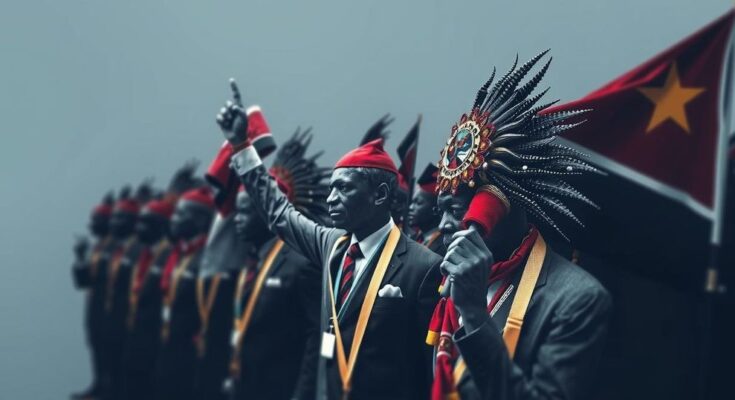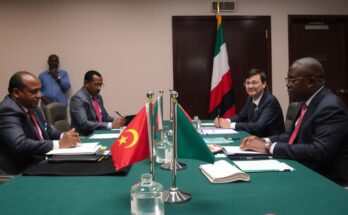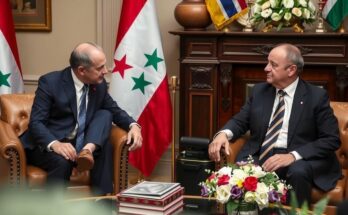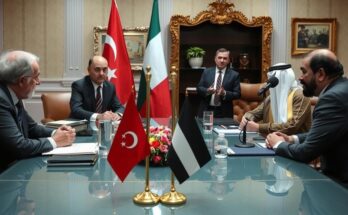The UN urges South Sudanese leaders to commit to democratic reforms as election delays extend the timeline for political transition to December 2026. UN envoy Nicholas Haysom expressed dissatisfaction and emphasized the necessity for action to implement the peace agreement and meet critical democratic benchmarks.
On Thursday, the United Nations urged South Sudanese leaders to reaffirm their commitment to a democratic transition as delays in election preparations prolonged the timeline for reforms. Originally anticipated for December, President Salva Kiir announced that elections would now occur no earlier than December 2026. UN envoy Nicholas Haysom expressed disappointment at this decision, citing growing frustration among citizens regarding the stagnation in political progress and peace agreement implementation. Haysom characterized the postponement as regrettable, noting that since the election delay, the implementation of the peace deal has stalled significantly. He warned the UN Security Council that the time is of the essence, as the situation must not remain stagnant until the 2026 deadline. Despite the challenges, he stressed that all stakeholders must work collaboratively to ensure that this extension is the final one, thereby delivering the required peace and democracy for the people. The UN mission in South Sudan (UNMISS) identified six critical benchmarks for the transition: unifying the army, enhancing civic education, preparing for voter registration, and establishing a political conduct framework. Since South Sudan declared independence in 2011, its journey has been marred by conflict; around 400,000 individuals lost their lives in the ongoing struggles which began in 2013. The 2018 peace agreement aimed to unify political leadership between President Kiir and his rival Vice President Riek Machar, yet efforts towards constitutional reform and inaugural elections have faced repeated setbacks. As the juncture of political instability, extreme poverty, ethnic violence, and corruption unfolds, the international community seeks clear evidence that South Sudan’s leaders are dedicated to a sustainable democratic future.
South Sudan, the youngest nation globally, has faced persistent challenges since gaining independence in 2011. The country has been embroiled in conflict since 2013, which resulted in substantial loss of life and considerable displacement of its population. The 2018 peace agreement sought to unite rival factions but has encountered delays in governance reforms and elections, contributing to political deadlock and a dire humanitarian situation. With the recent announcement to postpone elections to 2026, calls for timely action to fulfill the democratic aspirations of the South Sudanese people are becoming increasingly urgent.
In summary, the United Nations has highlighted the pressing need for South Sudan’s leadership to act decisively in facilitating a democratic transition amidst delays in electoral processes. The concerns raised by the UN envoy Nicholas Haysom reflect a broader call for accountability and commitment to the peace accord. The situation in South Sudan remains critical, underscoring the necessity for collaborative efforts to ensure a sustainable political future for its citizens.
Original Source: www.barrons.com




